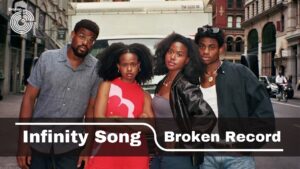In this episode of The Root, Bilal opens up to Questlove Supreme about his lost album, Love for Sale, a project that never saw the light of day despite being highly anticipated following the success of his debut album, 1st Born Second. Bilal explains that the album was tied up in various complications with Interscope Records, particularly after the passing of key figures like Moo and Damu. Eventually, the project was handed over to another party, but for years, Bilal didn’t even know where the files were. He mentions that the files might now be in the hands of someone named Fa, but it’s still unclear who fully owns the rights to the album, as Interscope likely retains ownership.
Bilal shares that at one point, he tried to release the album again, discussing the challenges he faced with the various parties claiming ownership. Despite some interest from Universal, Bilal says he’s resigned to the fact that Love for Sale may never be released, mainly due to the complicated history behind the project. At one point, he even reflects on how the album’s mystique might be more significant than its potential release, with the legend of Love for Sale outlasting what the music might have offered.
Bilal also delves into the production of the album, revealing that he had originally planned for J Dilla to produce half of it, with Bilal producing the other half. However, Dilla’s health problems derailed that vision. Bilal recalls how he traveled to Detroit to work with Dilla, but his collaborator’s illness prevented them from completing the project. Bilal tried to keep the vision of the album alive but struggled, particularly when it came to finishing Dilla’s tracks. He recalls being overwhelmed by Dilla’s intricate work, especially when it came to understanding some of Dilla’s beats, where Bilal had difficulty identifying the “one” or the core beat.
As Bilal discusses his frustration and the challenges of working on Love for Sale, he also acknowledges the personal turmoil he faced during that time, particularly due to his heavy drinking. This likely affected his ability to work with others and hindered the progress of the album. Ultimately, Bilal reflects on the project with a mix of nostalgia and regret, wondering if it’s better left unreleased, as its mythos might hold more value than the album itself.






